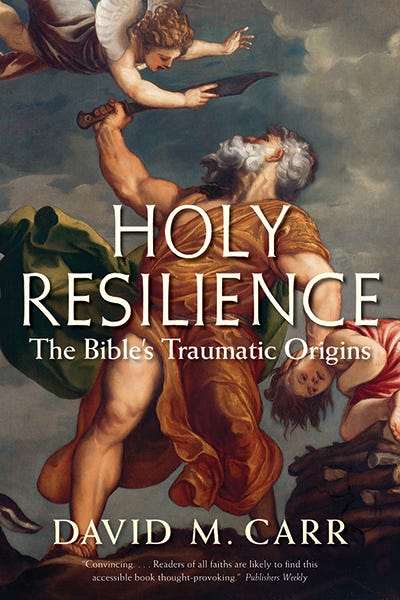Kings and Chronicles: A Case of Ancient Plagiarism?
Hello friends, welcome to this edition of lectionary notes! At the end of this newsletter you’ll see that I’ve included some questions for further thinking. Please do respond by leaving comments on this post, I’d love to hear from you!
If you’ve ever done the ‘Bible in one year’, and you’re anything like me, you’ll have been quite irked to find yourself reading Chronicles when you’ve just finished Kings.
“Haven’t I just read this?” I think to myself “am I losing the plot?”.
Or, if this isn’t your first time and you knew it was coming, you might simply resign yourself to reading the same things again and feeling quite bored.
If you’re following the alternative lectionary in the mornings, you’ll be reading some portions of Chronicles in the morning and Kings in the evening. A double dose of monarchic drama!
But what is the relationship between these texts? Is this a case of plagiarism in the ancient world? Why do they tell stories of the same events in slightly different ways, and since they have so much in common, why are they both included in the Hebrew Bible?
Marble statue of King Saul by William Wetmore Story, in the NC Museum of Art. Carved 1865.
Kings
In Biblical scholarship, Kings is considered to be part of the ‘Deuteronomistic history’, which is the portion of the Hebrew Bible beginning with Deuteronomy and ending with 2 Kings.1 Read together, the books provide a long narrative of events in Israel beginning with arrival into the promised land through the period in which the people were ruled by kings (or the ‘monarchic period’).
As always, questions of dating are contested. Although some of the book might be older, the Deuteronomistic history was edited after the exile to include the events of the Babylonian capture of Judah.
Coming off the back of 1 & 2 Samuel, which largely revolve around the reigns of Saul and David, 1 & 2 Kings focusses on subsequent rulers. With varying levels of success, the Kings of Israel (later, of Israel and Judah) attempt to lead the people both in their politics and their religion. The role of the king was not only to advance the cause of the nation and preserve the wellbeing of the people, but also of their relationship with God.
A constant refrain in the book of Kings, which comes about every time a king failed to rule correctly is that they did ‘what was evil in the sight of the Lord’. Usually, the appearance of this phrase is followed shortly by their death.
Although there are some stand out characters, Josiah and Hekeziah among them, the books of Kings largely record the failings of the monarchs. When the people ask for a king in 1 Samuel 8, Samuel warns them that this will not bode well. Nevertheless, they insist, and the books of Kings recount the ways in which human leadership falls short of that which was on offer from God.
Chronicles
If Kings has done the work of telling this story already, why do we need Chronicles?
Chronicles is not part of the Deuteronomistic History, and was likely to have been written much later than 1 & 2 Kings.
The book is a re-telling of the whole story of Israel, beginning with creation. Historically, the order of books in Jewish tradition was fluid, but the place of Chronicles in the Babylonian Talmud goes some way to highlight what the book is for. Here, Chronicles comes last.
It functions as an overview of everything from creation to the exile. One of the most interesting things about it is the way in which it retells the story. In particular, David comes off much better in Chronicles than he does in 2 Samuel! For one thing, there’s no mention of the Bathsheba incident…
Chronicles was written for the people at a different time, offering them an overview of their story.
One of the most interesting things about the relationship between Kings and Chronicles is that it is an example of the Bible interpreting itself - known as ‘inner-biblical interpretation’ in scholarship.2
We need both because they represent the way in which there are multiple voices in the Hebrew Bible that are in dialogue with each other.
These voices create a dynamic picture of the events described and show the importance of a diversity of perspective.
So - the next time you feel mildly frustrated about reading the same thing twice, or wonder if one author simply plaigerised another, consider it an opportunity to observe the multiple voices of the Hebrew Bible and ask yourself how they might be speaking to each other.
For further thinking – feel free to respond in the comments section!
What does it mean for the Bible to interpret itself? How does this shape the way we read scripture in general?
Where else does the Bible interpret itself (eg. places where a story is retold elsewhere in a slightly different way)?
Compare the texts about the events of the Babylonian exile (2 Kings 25 and 2 Chron 36). What strikes you about the two accounts?
What I’m reading: Holy Resilience by David Carr
In this book, Carr discusses the impact of the trauma of the exile on Biblical texts. This is a great example of a book written by a highly trained biblical scholar in a style that is accessible for all of us. I highly recommend it!
This theory was first advanced by the German biblical Scholar Martin Noth
For more on inner-biblical interpretation, see Fishbane, M., Biblical interpretation in ancient Israel (Oxford: Clarenden, 1985)





